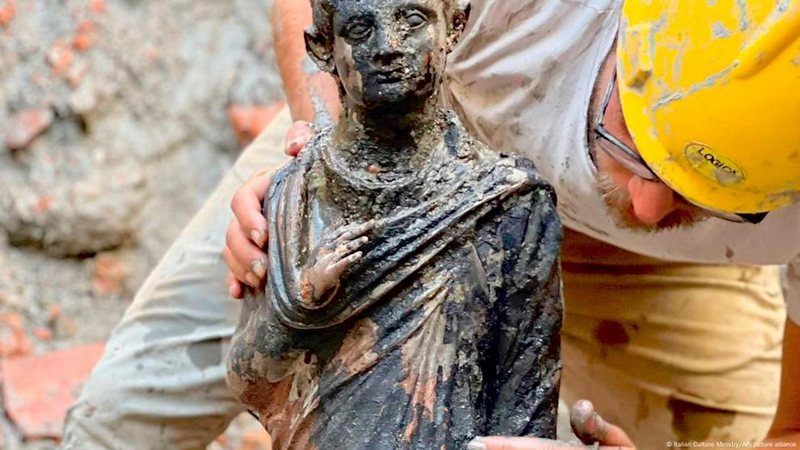
Important Etruscan discoveries in Italy, excavations bring to light important religious objects


Archaeological excavations at the central Etruscan sanctuary in Italy, Fanum Voltumnae, have apparently brought to light important religious objects.
The objects found allow conclusions to be drawn about rituals dating back more than 2,500 years. According to Italian media reports this week, two well-preserved stone rams' heads, a lion's head, large altars and a wide processional route were discovered on the outskirts of the city of Orvieto.
The sanctuary of the Etruscan city-federation near Orvieto, which is of enormous size, was discovered in the early 2000s during excavations led by archaeologist Simonetta Stopponi.
Excavations have continued since then. It is thought that this sacred site was built at the height of the Etruscan era in the 6th century BC.
The Etruscans settled in central Italy from the 9th to the 1st century BC. Their origins are still unclear, and their language and religion have only been partially studied.
The period from the 7th to the 5th century BC was the heyday of the Etruscans. The ancient historian Dionysius of Halicarnassus admired them as "the earliest and most distinct from other peoples."

The Ukraine summit that ignored the tough questions
ideas
top
Alfa recipes
TRENDING 
services
- POLICE129
- STREET POLICE126
- AMBULANCE112
- FIREFIGHTER128



























